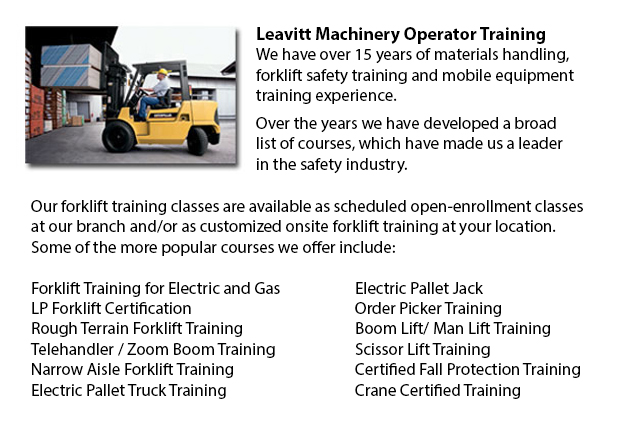
Forklift Certification Schools British Columbia - Forklift Certification is mandatory within North America. Hence, forklift training programs are important both for businesses and for people searching for jobs in industries as forklift operators. Forklift training focuses on safety and health issues included in utilizing forklifts. Safety concerns affect both the forklift driver and personnel and other people who are in the vicinity of the forklift. Companies could be subject to penalties if they are caught with operators who are un-certified during a check up. There are various compelling reasons why businesses need to follow forklift standards.
Most provincial, federal and state rules need an employee evaluation of the skills essential for forklift safety before the employer signs off that the worker is certified. There are many ways to get forklift training for workers, such as on line forklift training. However, employers need to know that forklift certification training is not "just a test". Right forklift training must consist of various areas of study, such as theory and hands-on practice. Rules do not need employers to have an outside organization to certify forklift operators.
A quality forklift certification school would include a recommended curriculum which comprises hands-on training that is performed on-site and classroom training. The training sessions within the classroom include videos, power point presentations, discussions and models. Students usually should write a test to check for understanding of subject matter. Certificates of completion are issued upon successfully completing the class.
An evaluation of the student's use of the equipment consists of pre-operational equipment inspections, knowledge of job site hazards, a pass/fail operational test and operational instruction.
Training normally covers the following subject areas: Understanding legislations and regulations; Controls & Instrumentation; maneuvering and Steering; Engine maintenance and Operation; Fork and Attachment Limitations, Visibility; Stability, Rated Capacities, Maintenance & Inspection; Load Control; Refueling; Pedestrians, and Dangerous Places & Rough Terrain Operation. There are also training courses offered for employees who are transitioning to new job positions.
-
Warehouse Forklift Safety Training British Columbia
Warehouse Forklift Safety Training British Columbia - The corporation would face claims for liability when damage and injuries are sustained in an accident at the workplace. Warehouses can be a hazardous place to work for its workers, making employee... More -
Loader Operator Certification British Columbia
Loader Operator Certification British Columbia - Courses Offered For Getting Loader Operator Certification - Certification for forklifts are required to guarantee the safe operation of forklifts for those employers in industrial, warehouse or constru... More -
Crane / Overhead Crane / Self-Erect Crane / Truck Mounted Crane / Hydraulic Cranes Training in British Columbia
Bridge cranes or likewise called overhead cranes are actually a type of industrial material handling crane making use of a line and hook device that runs on a horizontal beam running along two widely separated rails. Numerous overhead cranes could be... More -
Scissor Lift License British Columbia
Scissor Lift License British Columbia - The operation of scissor lifts carries an inherent chance of danger. Whichever type of powered machine requires correct handling to prevent accidents causing injury or damage. Companies need to make certain tha... More -
Heavy Equipment Training Schools British Columbia
Heavy Equipment Training Schools British Columbia - There are a lot of heavy equipment training schools to select from. If you want to get to the best, it is important to check various aspects of the school in order to ascertain the level of educatio... More -
Telehandler Training British Columbia
Telehandler Training British Columbia - Telescopic handlers usually called telehandlers for short, are an extremely popular piece of heavy construction equipment. They are commonly utilized in the construction and agricultural trades. These machines... More -
Forklift Training Courses British Columbia
Forklift Training Courses British Columbia - When forklift operator safety training is tailored for illiteracy, training time is lessened by 50%. Forklift training certification, lift-truck operator driver safety training evaluation, and train the tr... More -
Heavy Equipment Operator Training British Columbia
Heavy Equipment Operator Training British Columbia - Heavy equipment operator training facilities which provide quality standards in the business, providing field performance work and added machinery training are highly sought after training features... More

Forklift Training British Columbia
TOLL FREE: 1-888-254-6157
forklifttrainingbritishcolumbia.com
Email Us
About Us


